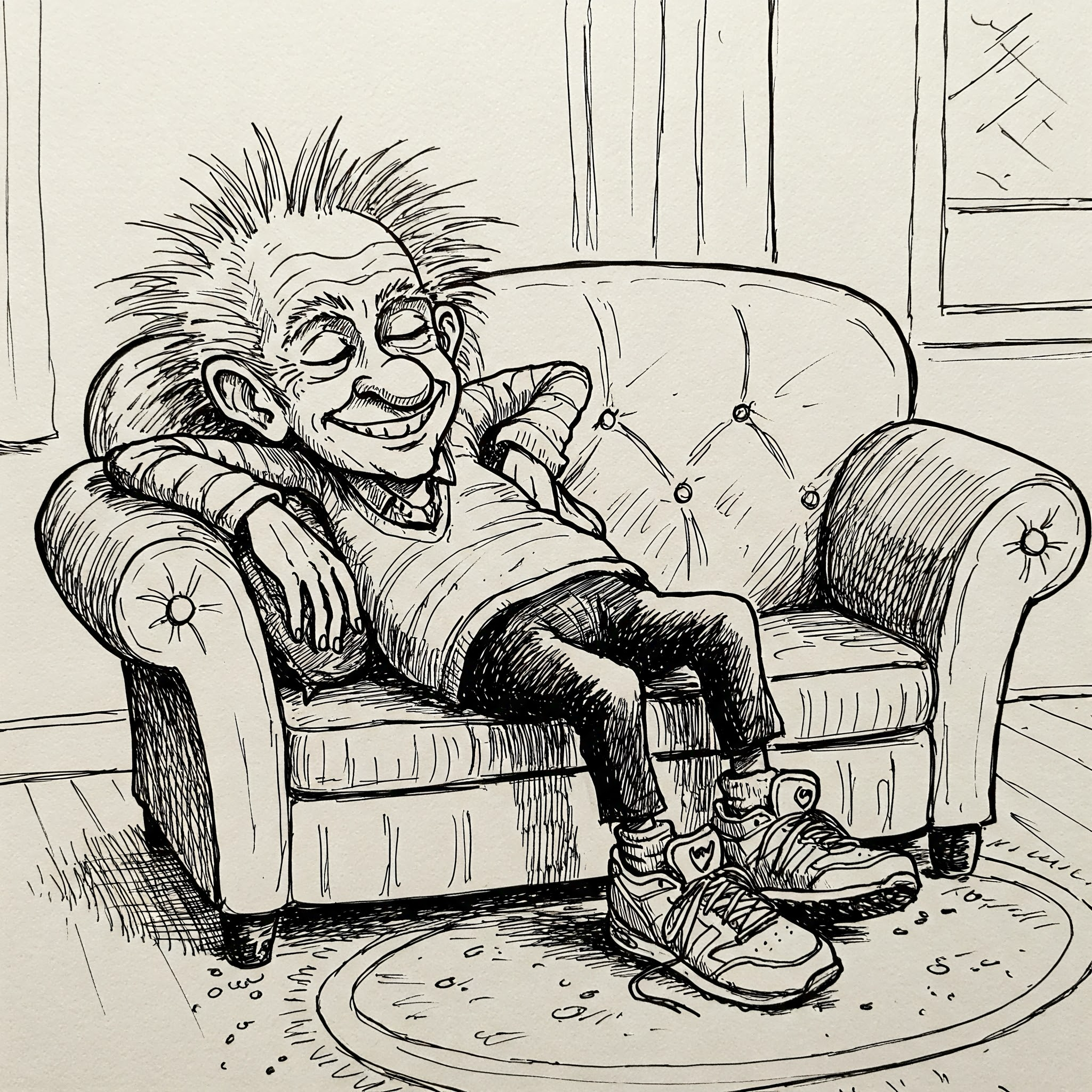There is a certain breed of individual—usually wearing a smug expression and a watch that tracks the number of times they’ve blinked that day—who insists that your entire life can be transformed by micro habits. Not proper habits, mind you. Not the sort of thing that involves genuine effort like giving up gin or remembering your spouse’s birthday. No, these are tiny habits. Microscopic even. Habits so small, you need a microscope, a magnifying glass, and possibly divine revelation to detect them.
According to the disciples of this movement—which seems to have sprung fully formed from the pages of some TEDx talk like Athena from the brow of Zeus—you need only do one push-up a day, or write one sentence, or stand near a book and absorb its essence through osmosis, and before you know it, you’re a Nobel Prize-winning, marathon-running, multilingual Buddhist monk with a six-pack and a gratitude journal.
They always say it starts with something like putting on your running shoes. Not going for a run, no, no, that’s far too aggressive. Just putting them on. That’s the habit. Apparently, your body, now adorned in footwear, will be so overwhelmed by the possibility of movement that it will fling itself out the door and begin pounding the pavement like a desperate antelope.
Of course, when I put on my running shoes, I simply look down at them for a bit, decide I’ve done enough for today, and reward myself with a custard tart. That, I’ve been told, is “missing the point.” But I disagree. I think I’ve found the point, and it’s a load of old bullshit.
The problem with micro habits is they were invented by people who are already insufferably productive. The sort of people who alphabetise their spice racks, have 47 browser tabs open and know what every one of them is for, and think that watching a film is “wasting valuable batching time.” They write Medium articles about “leveraging their mornings” and have never once, not once, hit the snooze button more than eight times.
These people will earnestly tell you that if you floss one tooth, just one, your brain will be so thrilled by your dental ambitions that it will spontaneously floss the rest of your mouth without permission. What they don’t realise is that my brain, upon completing the flossing of one solitary molar, thinks, “There, we’ve done our bit for oral hygiene,” and proceeds to eat a packet of Hobnobs as a reward.
Micro habits are the IKEA furniture of self-improvement: they promise simplicity, but you still end up confused, angry, and holding three leftover screws while your sense of accomplishment wobbles dangerously in the corner.
In the old days, if you wanted to change your life, you either joined the Foreign Legion, had a midlife crisis, or took up photography and shouted at the television. These were real habits, with character. You didn’t sit around lighting candles and journaling about your intentions. You got on with it. Badly, usually, but at least you made an effort.
Micro habits, on the other hand, are like those well-meaning motivational posters with sunsets and dolphins: lovely to look at, utterly useless when your actual problem is that it’s Monday and your boss is an angry walnut in a polyester suit.
So no, I won’t be standing in a yoga pose for 30 seconds a day, or whispering affirmations to my houseplants, or writing “Chapter 1” on a blank page every morning like some literary Ground-hog Day.
I’ll continue with my macro habits, thank you very much. Drinking too much tea, talking to myself in supermarkets, and wondering if putting socks in the fridge will save time later. None of them have improved my life either, but at least they’re honest about it.
Now, if you’ll excuse me, I need to go put on my running shoes and lie down.
